New To Self-Defense?
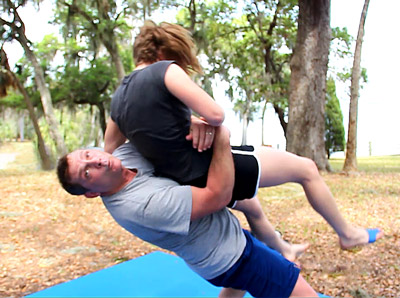
"When the student is ready, the Master will appear."
A very neat saying—and in some cases surprisingly true.
But not all cases.
Stick with me, what follows is information that can help you choose the right Instructor and school.

Why Do You Want To Train?
This one is huge.
It seems simple, but it often isn't. Ask yourself why you wish to train. Here are a few reasons. Some of them might seem silly, but to be honest, not everyone seeks to train for the same, rational, reasons. I have encountered all of these:

- Physical fitness.
Martial arts and self-defense classes can be fantastic for physical fitness. It comes down to what you are willing to put forth. Always. The "lead a horse to water, but you can't make it drink" phrase is 100% true with humans in this regard.
Self-defense and martial arts training is intense and requires a lot of energy—and it should! Defending yourself in a life-threatening encounter demands so much more from you than you can imagine.
If you train well, you end up gaining improved strength, balance, coordination, self-confidence, cardio and mental discipline.
If you aren't sweating and exerting yourself in class to maximum levels, you aren't in training to defend your life. Period.
That is the truth.
2. You want to be seen as someone who trains.
No, really. You will train alongside people who fall under this category. This is for the weekend warriors and the "sometimes" student who works for bragging rights only and invests little effort and time to make this a lifestyle choice rather than an ego choice.
If you are one of these people, consider fixing that little problem before you take your ego to places it doesn't belong—or worse yet, you end up hurting someone else or yourself.
Read my section on egos, if you fall into those categories, save the rest of us the bother. Find a mirror, or a nice shiny pool of water, and go admire yourself.
3. Because someone said you should.
Okay, we're going to assume this person has your health and well-being at heart and doesn't just want you out of the house so they can watch television without you asking them to do something every ten minutes.
There are two kinds of paths with this student. One, they find out they love the training and become a great student and an asset to those around them—and to the instructor.
Two, they dislike it and waste their money because they can't tell their partner to leave the house so you can have the remote control.
If you train because you made the choice and understand yourself well-enough to know if you are going to stick with something or not, then you will have a higher likelihood of staying with your choice. Few people enjoy being told what to do.
4. Because of fear.
No doubt about it, fear is the great motivator. It is also the great paralyzer. If fear gets you to make positive changes in your life, then use it. Use it well. Channel all your energies into crushing the reasons that drove you to train. Master your fear through positive action.
5. Because you think someone in the studio is attractive and you want to date them.
No. Just don't. Self-defense training is about changing your life positively, not changing someone else's by trying to slip into theirs. Your motivation is wrong. Train your passion to find your passion. Seriously. Great things happen when you do that.
Do not train to find passion.
If you do click with someone in training by happenstance, then do your best to keep the relationship separate from the training. You need focus when fists or knives are coming at you.
The people to whom you are throwing your fists at need you focused.
6. Because you want to learn how to defend yourself.
Wow. Seems the obvious one, huh? Often it isn't. At least not for reasons people think.
Defend yourself...what does that mean?
Really, think about it.
Imagine yourself in the scenario you think would give you reason to protect yourself. Are you alone? Is there more than one attacker? Do you have a weapon–knife, chair leg, glass vase, pencil, belt? Are you on a bed? Flat ground? In an elevator?
If you take time to think about these things it will help you narrow down your choices as to what kind of training you want and need.
If you've been in the unfortunate position of being attacked, then you already know some of these answers.
In this case, your choice to decide to learn how to defend yourself is an honorable one. Probably the most honorable.
7. You want to compete in tournaments.
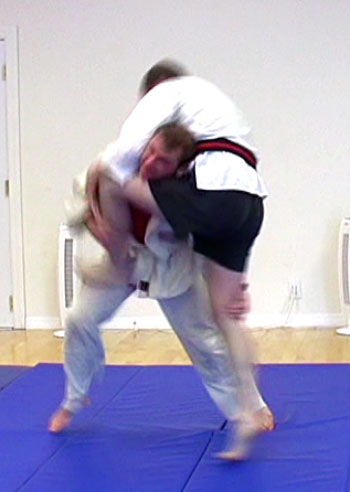
Okay, like McDonalds, there are plenty of schools and training environments that satisfy this hunger.
Tournaments have rules. If you train to reflexively adapt to those rules, expect that you will also do the same in a real fight. Does this put you ahead of many a couch potato? Yes. Against the hardened street thug? Possibly not. Against multiple attackers? Again, probably not.
I know people who stopped defending themselves in serious situations because they were habitually trained to stop at a certain point in class and wait for the person to tap.
There is no tapping in life-threatening encounters.
There are no rules.
We are talking people carving people up with broken glass, pushing them into traffic, not stopping their advance after you've shoved your thumb deep into their eye socket because they were on PCP or someone breaking your jaw from behind wearing brass knuckles while their friend engaged you verbally. These have all happened and worse.
Choose your path to help choose your training environment.
Finding The Right Instructor
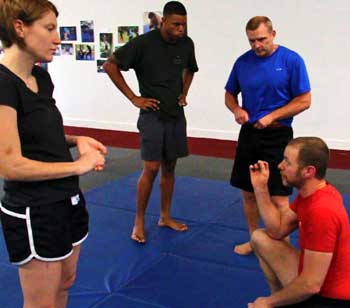
This is often more important than the kind of martial art or self-defense system on which you decide.
You have to remember, in the old days martial art training often began in the home. Many of the titles used in the traditional training environments are translated as "father/teacher."
People are often pushing the mentality that you should only train with an accredited instructor. This is great for those people networking and pushing the accreditation. Accreditation has fees, and each signup is a boost to the whole organization.
Accreditation doesn't mean the people who are training you are worthy of doing so—or even capable.
I have attended demos and seminars where the instructors are so absolutely certain they have all of your life's worries covered with their incredible martial art that you need only hand over your money to them to live a life of bliss and protection.
I have watched and have had extreme difficulty keeping my mouth shut or keeping my head from shaking at absurd misunderstanding being flaunted as knowledge and truth.
To the hard-trained fighter or student of life, it is quite easy to see people who are teaching who have never been in a real fight or who never train with proper equipment at high levels against people who can actually challenge them in realistic situations.
Instructors come to you in the following flavors:
- The generational teacher.
They teach what they have been taught without question. Generation to generation.
They honor their instructors and will not question their path or teaching methods. This teaching method is a tradition that has been passed on down through hundreds or years or more. They are institution, often honorable people and steadfast.
That being said, the problem with institutions are that they don't easily change or adapt—even if it is shown that something is inherently inefficient or wrong from the foundation of the system.
Anything that is so grounded in its past, stays in the past though the world moves on around them. We no longer fight with swords or on horseback.
Bruce Lee himself was always aware of this rigidity in the traditional mindset, this brick in water. It was why he eschewed systems and created Jeet Kune Do as a process of constant refinement and self-knowledge.
2. The money-maker.
They want your money. Pure and simple. They want your children so that they will get more money. They are the puppy-mill of human beings, churning out product after product and making sure you don't leave that day without purchasing something.
They are often successful financially, have many colorful vans to ship loads of children to and from schools, and become a process center and daycare for...you guessed it, money. Your children are $. You are $.
These people used tried and true methods for hooking your psyche to make you want them. They have classes on how to do this.
While there are some capable instructors in this...system...you just have to ask yourself how eager you are to become a product.
3. The floundering.
This person is looking for their own path in life and teach martial arts in the hopes it will get them there. They tend to be unfocused—or at least unfocused on your progress as much as they are on finding their way to their destination.
They are generally harmless, and maybe you can help them. But is that why you are going there?
4. The wise-mystic.
This person is the epitome of the wise master in the long flowing white beard and mustache sitting in the cave at the top of the mountain in China or India somewhere. This person attracts a lot of believers.
This person also has the interesting habit of keeping the "secrets" they hold, you know, those things like levitation and mind-reading, at arms length so that you continue to follow them over years into their fantasy.
I know, people will say to me, "But you don't know! This could be real, you don't know everyone in the world. There could be someone out there with these powers."
This person is usually a 12-13 year-old boy with feverish eyes and a lust for wonder.
No, I don't know everyone in the world.
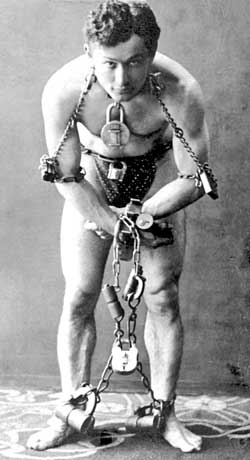
I do know people, however. James Randi and Harry Houdini helped debunk many of the people who fall under the "secret powers" category.
I have also been an amateur magician and escape artist in my earlier life. I know how people fool other people, make them believe in these special abilities, with sometimes surprising ease.
I also have been in the martial arts for a great part of my life. I have met and trained with many, many people from all parts of the world. We all generally love the idea of having secret powers, but we also understand that is a dream we have and is the sometimes motivator for getting us into training in the first place.
In the history of human civilization we have always had the believers and the realists. I think there is room for us all on this planet.
However, I prefer my functional toolset in a life-threatening encounter to be rooted in knowing physics and human psychology—not from reliance on whether or not I could knock someone out by concentrating really hard and channeling my chi toward their inevitable downfall.
5. The hardball.
This person is usually close-minded and believes that you must feel a lot of real pain frequently in order to know how to fight.
They usually enjoy taking to various parts of your body with kicks and punches and 2x4's (not even kidding) and require you to break a lot of things.
They favor stiff, blocky movements, a lot of screaming and clashing of limbs.
This person doesn't usually last long in business.
But there are other hardballs out there who will follow this person...until their body fails them early in life and they have to retire from the training with only their glorious memories accompanying their intake of painkillers.
6. The genuine article.
This person is rare. If you find this person, promote him or her.
This person is usually found by word of mouth from trusted sources.
This person usually doesn't have giant schools with tens of thousands of students, gravitating toward fewer students who get more personalized instruction.
This person may have genius-level perception skills or ability to imagine pathways never tried—and solutions to problems suited to your unique physiology or psychology and situation.
They have a deep interest in your progress and effectiveness and an open mind toward the truth that they don't know everything, but that not everything is unknowable.
This person doesn't have an egotism, preferring your progress over their status. Your effectiveness is their pride.
This person may be mildly humble and completely okay with your leaving their presence without purchasing something. They encourage you to investigate other schools and systems because they are confident in their abilities and path and know that you may or may not be a fit with them.
This person is authentic in the training environment and in their life outside the studio.
A final note. I have trained people coming from many different disciplines—several holding double black belts in different systems.
People leave a system for many different reasons, most having to do with money and time. Many of them also are because of the instructor.
If your gut cringes in the presence of any one of these people, leave. Don't sign anything. Be polite and leave.
Training with the wrong instructor can be dangerous to your health or your wallet.
A good instructor should be paid well.
A great instructor should be invested in.
Which Martial Art?
So which one?
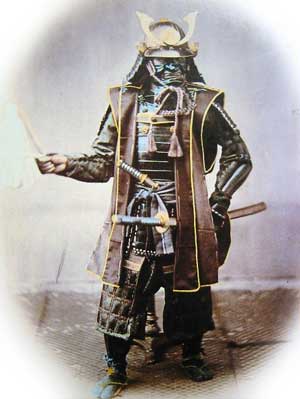
You have to remember, martial arts came about because of fighting. War.
There is a nasty efficiency to war that has been lost over generations due to egos and, well quite honestly, not having ways to train at full intensity without dismembering your students.
So modifications were made to the training effort that kept students alive, but watered things down quite a bit. Some of the motions were kept, but over time, the intent was lost. Eventually the true reason why you do the motions was lost. Intent was replaced with dogma and institution.
Eventually, the motions became lost to favor the efficiency of training large groups of people quickly. And in modern times, where space is limited, you have the reduction of some of the techniques because of lack of room to move.
"Real fighting is nasty, disorganized, violence."
This is why you can today see some martial art schools pack 40 students tightly together in a strip mall unit while they all perform the same movement at the same time.
Real fighting is nasty, disorganized, violence. It can take up a lot of space. If you see a street fight, you know that people rarely stay in a confined location. Very little of it looks graceful or preplanned according to a universal fighting "template."
When the fighting is over, they also don't return to the exact same spot from which they started—some kata systems require this of you. Some will say katas are used as a form of discipline of the body or of a way to keep alive the training methods down through generations.
It is certainly not a natural, reflexive response to things that can change drastically in less than a tenth of a second.
That's a fight.
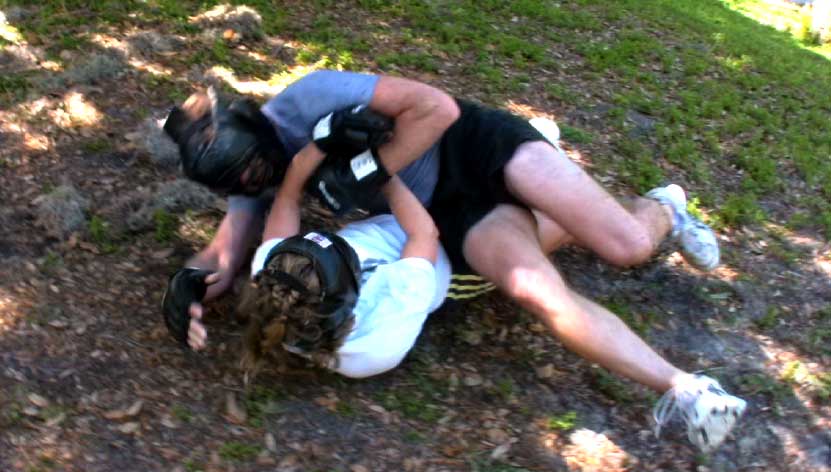
Your training environment should reflect this liveness in intelligent ways. It should allow for natural movement of your own abilities and abilities (or attributes) you can develop to high levels.
You don't train liveness by practicing rigidity.
But then again, if you wish to train that way, please have at it and enjoy. There are many schools that will welcome you in this.
As a funny side note, a woman came to me to be taught, and during my interview she commented with glee how she just loved kata. That she could just do kata for hours on end.
I enjoyed her enthusiasm and told her politely, "I don't think we're the place for you."
So what is the place for you?
Stay with me, we first have to get you through some of the ways martial art schools try to convince you they are for you—even if they are the last place you should enter.
People generally gravitate toward something in 2 ways.
1. They are moved through emotion.
Martial arts are filled with beautiful, flowing movements depicting effortless grace and also hard, screaming, smashing movements depicting power and dominance. They are filled with people of great charisma and certainty as well as humility and serenity. They are also filled with a good supply of egotism.
2. They are moved through social consensus or pressure.
If you wish for belonging, love, respect and social status—even a sense of security—this will appeal to you greatly. You will have a tendency to go with the flow of the majority.
It is the herd mentality that favors being liked in a social setting over being expressive in your own truth, regardless what others think.
This often has the problem of not addressing your unique personality or perspective, however—assuming you've gotten to the point in life where you've developed one.
Your motivation path helps determine which martial art or training environment—and instructor—you will favor.
Here are some ways schools and instructors will try to entice you to join them.
- Through a dominant-personality salesperson that tries to overshadow your decision-making ability to favor theirs.
- Colorful designs, attractive sales persons, extensive reach and amenities.
- The promise of simple, quick steps to overcome any attacker.
- A bold assertiveness that flaunts military or comando-style mindset and dress—how many camo cargo pant styles are there for cripes sake??
- By flaunting a long list of their certifications.
- By flaunting their trophies and the trophies of their student base.
- Minimal advertising, mostly through word of mouth.
- No advertising. Teaching only through word of mouth in their home after work.
Sifting Through Egos
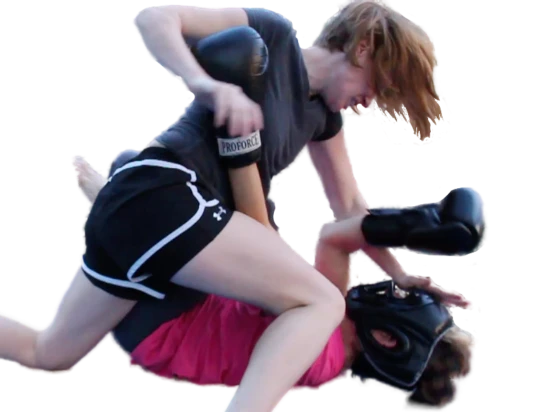
The problem with people who play to the ego:
They have to maintain a self-projected image. This image can be formed internally or externally.
They have to maintain a following (it boosts their image). This is done several ways, including putting down others so they look better. Believe it or not, a person who is intimidating is appealing to some people. They see it as a strength, rather than the insecurity it is.
They tend to be more rigid, maintaining a structure in training that doesn't vary. To vary, you have to be creative. To be creative you have to take risks. To take risks, means you may not be able to control how you are seen by others.
Ego feeds ego.
Meaning that some instructors manipulate people or situations in ways that only make them look good: training with people who don't really challenge them. Not training with women who can challenge them—this is often seen as the worst thing that can happen to the male ego. In this, women generally don't get trained to higher levels.
If you encounter this ego in your approach to find a school, find another one. Some schools accumulate the testosterone crowd—women can have high testosterone and egotism, too, by the way—and those types of schools generally have a higher injury list.
The more you are injured in training, the less training you can do. Subsequently, you don't get better as fast.
If your goal is truly becoming functional in self-defense, you should look for two things in a school:
- Proper safety equipment that is actually being used.
- No safety equipment being used.